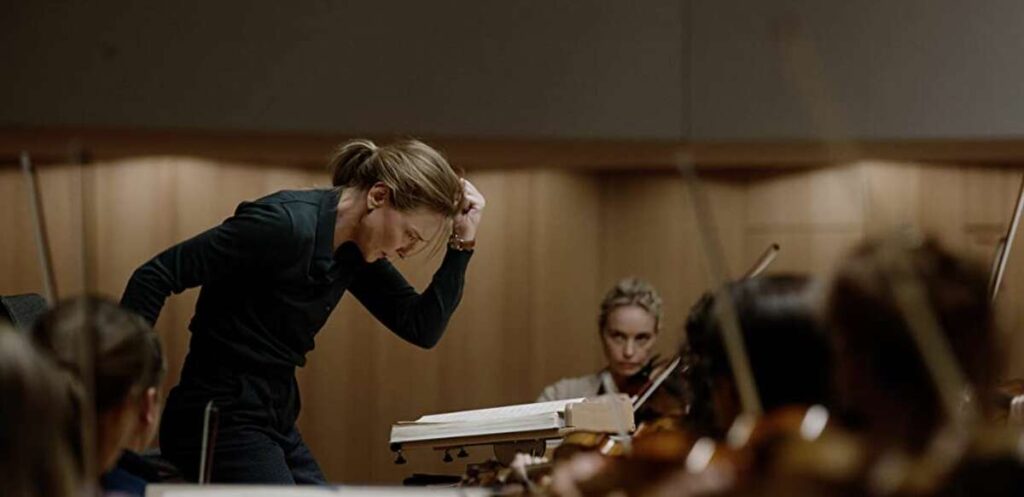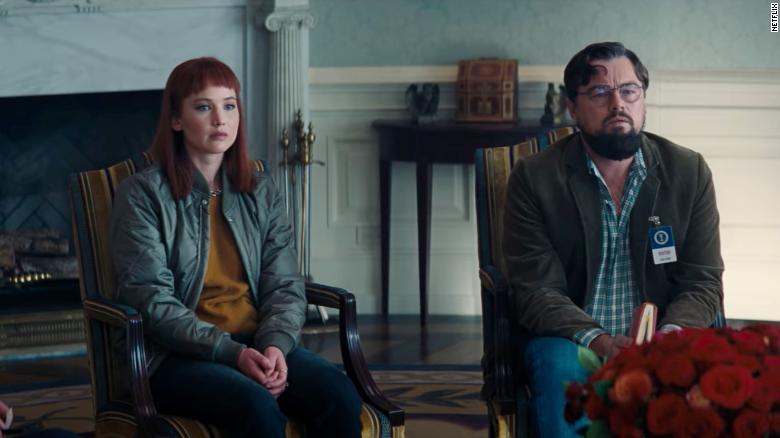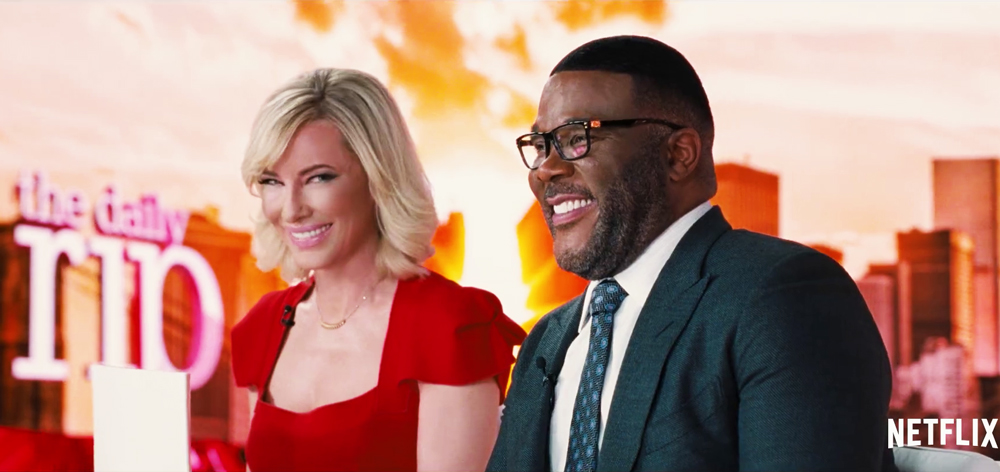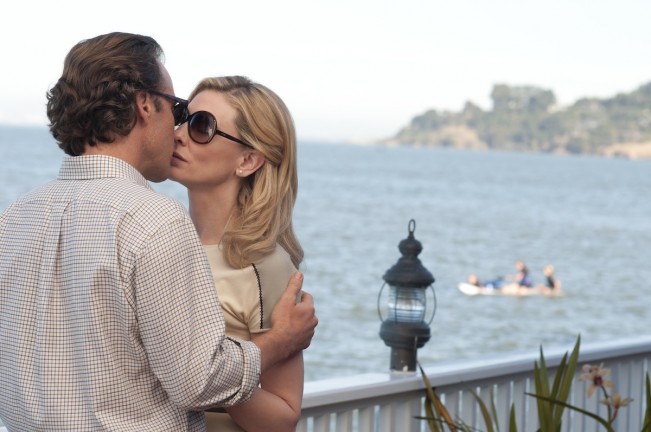
Tar, Todd Field’s exploration of #MeToo and Cancel Culture, is a showcase for the considerable acting talent of Cate Blanchett. We immediately accept her as Lydia Tar, a superstar orchestra conductor. Lydia is an international thought leader in music, she speaks fluent German, and big SAT words flow off her tongue in her regular speech. She’s also imperious and abuses her privilege.
We’re used to powerful men abusing their position, but Field, by centering on a powerful woman, unpeels our kneejerk reactions. Here’s a person who has earned her status by talent and accomplishment – but she’s just too mean and selfish.
Of course, it is written that pride goeth before destruction and a haughty spirit before a fall. These days, a viral internet can bring destruction and fall with shocking suddenness. In Tar, the telling of Lydia Tar’s final arc is compelling.
But Tar is almost two-and-a-half hours long, and the middle part is too long. Field invests about an hour and forty minutes in showing us how masterful Tar is. Having already gotten his point in the first forty-five minutes, I nodded off.
I found a very public flameout at the end to be implausible, but the Wife found it believable.
The cast is excellent, especially Nina Hoss (Barbara and Phoenix) as Lydia’s spouse and Noémie Merlant (Jumbo, Curiosa) as her seemingly fragile assistant.
Todd Field has made three feature films, the others being the superb 2001 family psychological drama In the Bedroom and my choice for the best film of 2006, Little Children.
Note: most of what usually goes in a movie’s closing credits (gaffers, best boys, caterers, drivers, accountants and the like) is in Tar’s opening credits. The closing credits only includes the cast, the music and the musicians. Odd.
Blanchett’s performance deserves an Oscar nomination, but I wouldn’t sit the the whole movie again in a theater.




